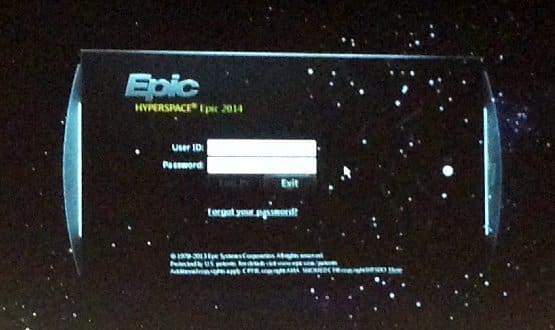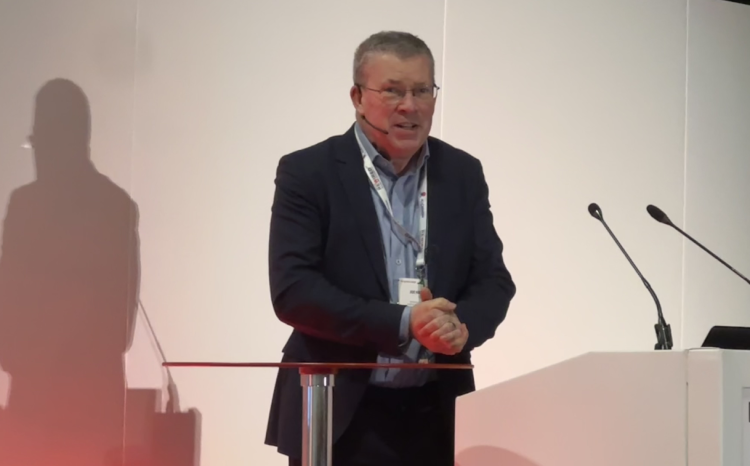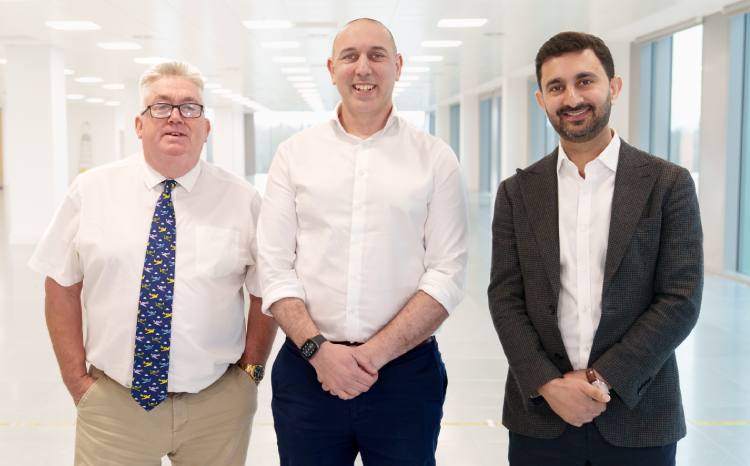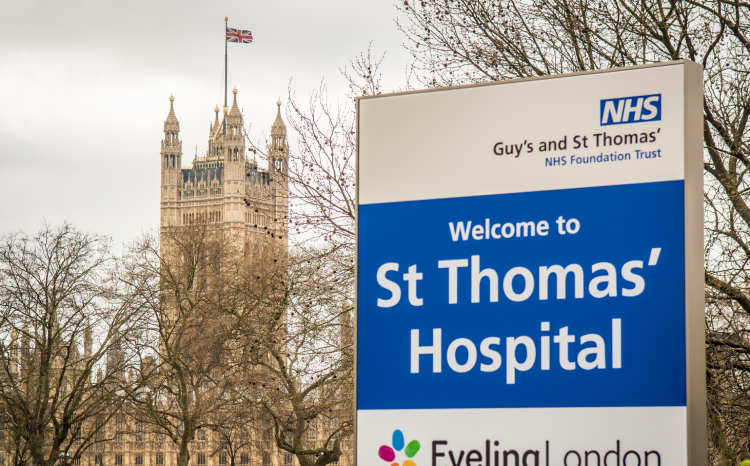Three months and counting to an Epic event
- 5 August 2014

It has its own dedicated website, more than a thousand super users, and 120 hospital staff seconded to work on the project.
Really, “it’s Epic” is the only way to describe the eHospital programme at Cambridge University Hospitals NHS Foundation Trust.
Not just an IT programme…
Cambridge is running the £200m programme with its neighbour, Papworth Hospital. The outcome will be a major infrastructure and hardware refresh and the deployment of the Epic electronic patient record system.
The software go-live is scheduled for 25 October and preparations are underway, with training for 7,000 staff due to begin in the last week of August.
During a site visit to the trust as part of the CCIO Leaders Network summer school at the end of July, the excitement from the staff working on the programme was easy to catch.
As they kept insisting, this is not just an IT programme. It is a programme to “transform patient services” by giving staff – and, eventually, patients – “access to all patient information, whenever and wherever they need it.”
Even so, there’s going to be a lot of new IT. Dr Afzal Chaudhry, Cambridge's clinical lead for IT, says: “There’s nothing here IT wise that can be deemed fit for purpose, so we are replacing all of it.
“Everything a clinician would touch is going to be switched out. We have got something like a thousand systems and they are all being swapped out by Epic.” The trust is only keeping a couple of very small, specialty systems; which will also, eventually, be replaced.
Involving staff, the Epic way
To try and make sure that the system does exactly what clinicians need it to do, every specialty has been involved in designing customised pathways and functionalities that work for them.
“It’s the clinicians that deliver the care and we made sure clinicians were at the heart of everything we’ve done,” says Dr Chaudhry.
However, those 7,000 staff are all likely to have an opinion on what they want the system to look like. To manage this, the trust has created an eHospital Design Authority, consisting of senior staff members who are “all still doing clinical work” but who are seconded to make final decisions.
The seconded staff include 19 consultants, two junior doctors, 14 nurses, and several admin staff and allied health professionals. Then, there are those super users, who have all been trained in the “Epic way”.
The American supplier is known for doing things a little bit differently to others, and one of the things that it does differently is to make staff take an exam on the system; and achieve a 95% pass rate.
David Kwo, the programme manager at the trust who is responsible for the Epic software, says that everybody seconded to work on the system has had to take the test.
He adds that Epic also had a very strict view of how many staff they needed to work on the project. “When we signed the contract they gave us a spreadsheet on how many staff we need to recruit and what kind of people,” he says.
“One of the first things we did was getting over the shock of how many people we need to implement the system. However, the response has been enthusiastic. “We got 90% from internal secondment,” Kwo says.
“On top of the 120 [super users] a number of people were needed from across the departments as subject matter experts, who look at the build and validate things – and we got them as well.”
The outcome of all this work will be a big-bang deployment. In October, the trust is planning to go-live with a full patient administration system, specialist modules, nursing and clinical observations and documentation, order communications, a specialist theatre system, pathology, radiology and e-prescribing; to list just the major components of the EPR.
Wireless and hardware going in now
Meanwhile, the infrastructure and hardware part of the eHospital programme has gone to Hewlett Packard, which also accounts for 70% of the costs for the £200m project.
Work on the hardware refresh is already underway. HP has put in a thousand network points for wi-fi and installed 1,300 computers.
The wi-fi is important as nursing staff will be using iPod Touch devices with Epic’s ‘Rover’ app to get access to the patient records at the bedside. They will use the same devices for medications and vital signs recording, as well as reviewing clinical tools and specimen collection.
The idea is that a nurse will be able to look up and enter data on the device, have it entered directly into the record, and will receive alerts if a patient deteriorates. Cambridge has also just approved a bring-your-own-device strategy, so staff can use their own phones.
Making the business case
The trust does not shy away from the fact that it is making a huge investment. Carrie Armitage, director of the eHospital programme, says there have been a lot of questions around “how have you managed to afford this?”
The trust worked up a business case, focusing on the benefits it aims to achieve, and borrowed £50m from the Foundation Trust Financing Facility.
The hard benefits amount to £15m of savings a year; but there is still a £5m shortfall, which will have to be made up through the implementation programme.
“We have to pay everything back, and the only way we are going to be able to do that is through delivering benefits,” Armitage says.
Critics might argue that the evidence base for the financial benefits of big IT investments in the NHS is almost non-existent; and Armitage concedes that they have a case.
“When it comes to it, we’ve been really bad at benefits in the NHS,” she says. “That doesn’t mean it can’t be done. The business case focuses entirely on the benefits. These are not just hypothetical.”
Asked for an example, she says that without paper records, the trust will not need a records department or library staff.
Even so, she acknowledges that there are difficulties in quantifying the cost savings, especially when it comes to systems such as e-prescribing; for which many trusts are now trying to build tech fund bids.
“The big one is having fewer adverse drug events,” she says. “The problem is that we’ve never counted [the cost of those] so we don’t know how much we’re going to save. It was quite difficult to get any base data to figure out how much it was.”
Another way in which the trust hopes to drive benefits is through reducing unnecessary diagnostic tests. At the moment, trust policies say that if a test comes back with a normal result three times, there is no need to do it again.
However, Armitage says that the trust’s current order communications system makes it much easier to order a set of tests than just one test within the set.
As a result, many tests are repeated unnecessarily, just so clinicians can run the one they need. “There are definitely potential savings here,” she says.
Cambridge has thought long and hard about this project, and it shows. On the site visit, those involved came up with answers to even the most sceptical of questions and were clearly enthused; despite the stressful weeks ahead before the deployment.
The countdown is on
In order to engage staff, the trust has created its own eHospital website. This runs updates on what is happening, enables them to ask questions, invites them to come up with ideas and encourages them to book themselves in for training.
It also has a newsletter that goes out to staff on the latest news. Keith Swinburne, who is responsible for stakeholder engagement, says his team is trying to get to “everyone under every rock.”
“Some people are lapping it up and some are moving as far away from IT as possible,” he says. “We need to engage with all of them.
“If you tell people you are going to replace their PC and do some IT stuff, they do not really want to be involved. You need to tell them it’s about improving healthcare.”
No more paper
When the trust does go-live, there will be no more writing on paper notes. In the first few weeks, clinics will run on a reduced basis, but staff will only have access to paper records if they need them for historical notes.
The trust has created a parallel system to store legacy data ,such as pathology data, clinical correspondence, discharge summaries and radiology data .
“We made the decision not to convert into Epic, so we’ve built a system called LARDR for legacy data. Everything is being converted into a lightweight view of the patient data,” says Dr Chaudhry. The system will interface to Epic.
The eHospital programme will not just affect the trust, but the local healthcare community. The trust is using InterSystems’ HealthShare to interface with the local university and the biomedical research centre.
“We are also talking to clinical commissioning groups about integrating primary care. All the communication we send out will go out through HealthShare to nhs.net, where they can get that into their GP systems,” says Dr Chaudhry.
After go-live the trust will also introduce MyChart, Epic’s patient portal. Beginning with certain long-term condition cohorts, patients will get access to their own records and book appointments.
But before that, 25 October is approaching at a huge speed. “We just have to be ready,” says Swinburne.




